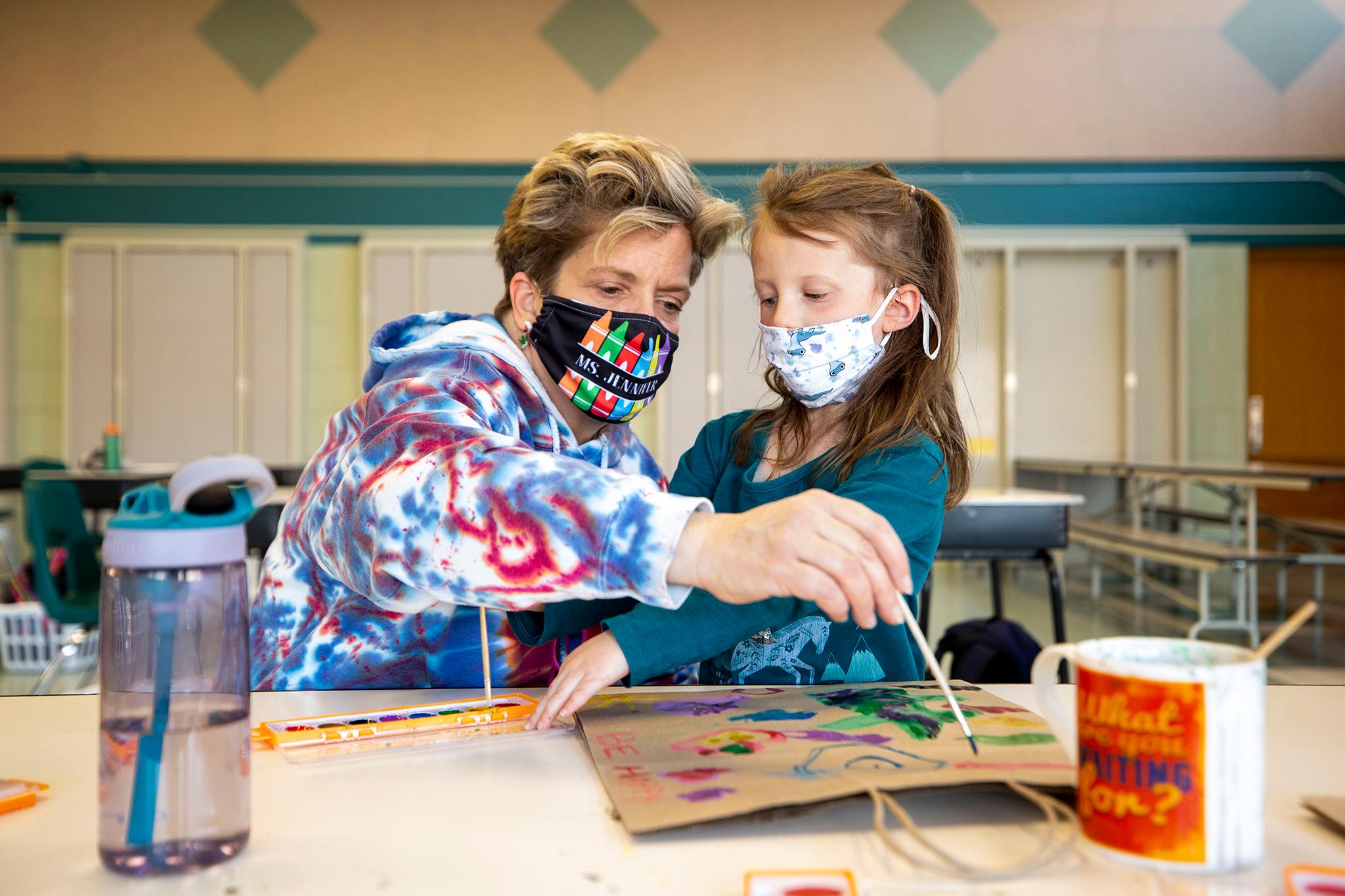The World Health Organization labeled Omicron, a new strain of COVID-19, a “variant of concern” on Nov. 26, just a day after many in the U.S. celebrated Thanksgiving with their families. The variant was first sequenced in South Africa earlier this month, but there have been no confirmed cases in the United States.
Should Denverites be worried? We talked to Tori Burket, the epidemiology and disease prevention manager with the City of Denver, who said the sinister-sounding strain was definitely worthy of attention — but not alarm.
“I don’t think it’s cause for panic,” Burket said. “We’re still trying to learn a lot about this variant. We’re still trying to understand the transmission, the severity.”
The variant has mutations affecting spike proteins, or the nubs that protrude from the surface of the virus and act as the “keys” into healthy cells. The highly-transmissible Delta variant, now the dominant strain in the U.S., has around nine mutations on its spike proteins. Omicron has 32.
“These mutations are the things that can make these variants either more transmissible, cause more severe disease, potentially evade vaccine effectiveness or make monoclonal antibody treatment less effective,” Burket said. “We saw that with Delta, where a lot of these mutations were associated with increases in transmissibility and severity of disease.”
Scientists are now working overtime to study what effect these mutations may have, but it will be weeks before concrete answers can be determined.
Burket said the missing information also makes predicting the timeline of the new variant’s spread impossible. The U.S. restricted travel to South Africa, Lesotho, Eswatini, Botswana, Namibia, Malawi, Mozambique, and Zimbabwe as soon as Omicron was classified as a variant of concern, but Burket doesn’t believe this will be enough.
“Travel restrictions really just kind of give public health officials and medical officials a heads up and and give us a little bit more time, but it’s not a perfect system,” she said. “There’s very limited ways for us to completely stop the transmission, so I would anticipate that eventually we will have cases that pop up in the United States.”
However, she said that Denverites are already doing a good job at protecting themselves and others.
“One of the benefits that Denver specifically has is really great vaccine coverage,” Burket said. As of Nov. 25, nearly 90% of Denverites ages 12 and older have had at least one dose of the vaccine. She also praised Mayor Michael Hancock’s latest order bringing back face-coverings in Denver until early next year.
There is still no definitive data on how effective different vaccines are against Omicron, but Burket said that the Delta variant may give some insight into the future.
“Anecdotally, it has been reported that that Omicron is circulating much more heavily in unvaccinated communities, and people who are vaccinated are not experiencing as severe of disease, which is pretty similar to what we saw with Delta,” Burket said.
This trend has also proven true in Colorado, where 83 percent of those hospitalized with coronavirus are unvaccinated.
The World Health Organization has named other variants of concern, including Alpha, Beta, Gamma and Delta, since the beginning of the outbreak in March 2020. Omicron is the now the fifth. Burket said Colorado is sequencing PCR tests to actively monitor newly mutated or already identified strains of interest.
There are still many unknowns, but Burket said that health officials’ recommendations are staying the same.
“Getting vaccinated if you’re able to, social distancing, getting tested if you’ve been exposed or have symptoms — those are things that people can do in general to reduce their risk of severe disease or infection with COVID-19,” she said. “Right now, there’s nothing to suggest that we would change any of those recommendations.”














